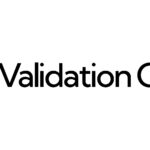Eli Lilly has announced a significant investment of $5 billion to establish a manufacturing facility in Goochland County, Virginia, aimed at boosting production capacity for targeted cancer therapies and other treatments. This initiative marks the first among several upcoming investments in the U.S. by the pharmaceutical giant. Earlier this year, Eli Lilly unveiled a plan to invest at least $27 billion across four new domestic manufacturing plants, building upon $23 billion in investments made since 2020. The company plans to disclose the locations of the remaining three facilities later this year, with expectations to commence production within five years.
The decision to increase domestic manufacturing comes in response to pressures from the U.S. government, particularly from previous discussions surrounding tariffs on imported pharmaceuticals. These tariffs are intended to stimulate companies to bring production back to the United States, a move that has garnered attention as domestic drug manufacturing has sharply declined over the last decade.
The newly planned facility in Virginia will focus on developing active ingredients for cancer and autoimmune drugs, in addition to advanced treatments. Notably, this site will be the first fully dedicated facility for Eli Lilly’s bioconjugate platform and its portfolio of monoclonal antibody medications. A key focus will be on increasing the production of antibody drug conjugates, which are designed to deliver a toxic payload directly to cancer cells, thus minimizing collateral damage to healthy tissues.
Eli Lilly’s CEO, Dave Ricks, emphasized the vital role of this new facility in supporting the company’s growing pipeline of therapies, pointing out that it will enable the firm to produce medicines that are currently sourced from third-party manufacturers, primarily in Europe. The choice of location was influenced by logistical advantages, workforce availability, and the fact that the site was already prepped for industrial use.
Ricks highlighted that the move to build in the U.S. was more influenced by favorable tax conditions rather than the looming threat of tariffs on pharmaceuticals. He cited the benefits stemming from the 2017 Tax Cuts and Jobs Act, which significantly reduced the corporate tax rate, making domestic investment increasingly attractive.
The Virginia facility will incorporate advanced technologies such as machine learning and artificial intelligence, aimed at ensuring efficient production processes. It is projected to create over 650 permanent jobs, including roles for engineers, scientists, laboratory technicians, and operations staff. Additionally, the construction phase of the facility is expected to generate 1,800 jobs within the region.
Eli Lilly’s existing manufacturing footprint includes sites in North Carolina, Indiana, and Wisconsin. These new investments are not solely aimed at bolstering the production of weight loss drugs like Zepbound and diabetes treatments like Mounjaro, which have seen a surge in demand. The company is strategically positioning itself to diversify its offerings, looking to expand its influence in the treatment landscapes for cancer, Alzheimer’s disease, and other medical conditions.







